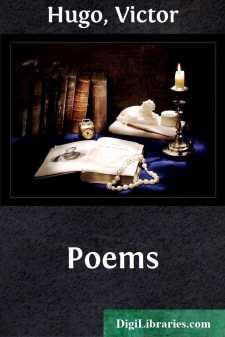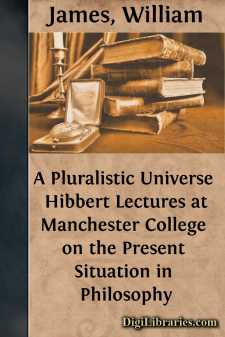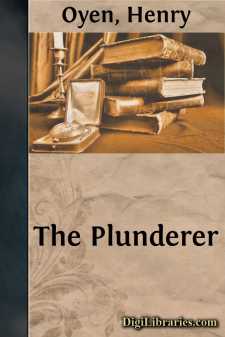Fiction
- Action & Adventure 180
- Biographical 15
- Christian 59
- Classics
- Coming of Age 5
- Contemporary Women 3
- Erotica 8
- Espionage/Intrigue 12
- Fairy Tales, Folklore & Mythology 236
- Family Life 169
- Fantasy 117
- Gay 1
- General 596
- Ghost 32
- Historical 808
- Horror 43
- Humorous 159
- Jewish 25
- Legal 4
- Medical 22
- Mystery & Detective 315
- Political 49
- Psychological 41
- Religious 64
- Romance 158
- Sagas 11
- Science Fiction 730
- Sea Stories 113
- Short Stories (single author) 537
- Sports 10
- Suspense 1
- Technological 8
- Thrillers 2
- Urban Life 31
- Visionary & Metaphysical 1
- War & Military 173
- Westerns 199
Classics Books
Sort by:
by:
Victor Hugo
Towards the close of the First French Revolution, Joseph Leopold SigisbertHugo, son of a joiner at Nancy, and an officer risen from the ranks in theRepublican army, married Sophie Trébuchet, daughter of a Nantes fitter-outof privateers, a Vendean royalist and devotee. Victor Marie Hugo, their second son, was born on the 26th of February, 1802, at Besançon, France. Though a weakling, he was carried,...
more...
Birth-night of the Humming Birds The Departure of the Fairies I. I'll tell you a Fairy Tale that's new: How the merry Elves o'er the ocean flew From the Emerald isle to this far-off shore, As they were wont in the days of yore; And played their pranks one moonlit night, Where the zephyrs alone could see the sight. II. Ere the Old world yet had found the New, The fairies oft in their...
more...
CHAPTER I. She was a rather tall, awkward, and strongly-built girl of about fifteen. This was the first impression the "maid" gave to her "mistresses," the Misses Leaf, when she entered their kitchen, accompanied by her mother, a widow and washer-woman, by name Mrs. Hand. I must confess, when they saw the damsel, the ladies felt a certain twinge of doubt as to whether they had not been...
more...
by:
Dutton Payne
CHAPTER I THE URSULINE LOSES A PUPIL "If the ship sails at dawn, then I must hasten to tell my mistress of the departure, and—of her father's letter." "I am loath to let yonder tide take her away so soon, Janet." "But my master's words are a positive command to leave Quebec at once," and Janet's eyes fell to the imperative line at the close of her letter which...
more...
by:
William James
LECTURE I THE TYPES OF PHILOSOPHIC THINKING As these lectures are meant to be public, and so few, I have assumed all very special problems to be excluded, and some topic of general interest required. Fortunately, our age seems to be growing philosophical again—still in the ashes live the wonted fires. Oxford, long the seed-bed, for the english world, of the idealism inspired by Kant and Hegel, has...
more...
by:
Henry Oyen
THE PLUNDERER I Roger Payne had come to a decision. He waited until the office door had closed behind the departing stenographer, then swung his long legs recklessly upon his flat-top desk and shouted across the room at his partner: "Jim Tibbetts!" Tibbetts frowned. He was footing a column of cost figures and the blast from his young partner nearly made him lose count. Payne grinned. He liked...
more...
CHAPTER I "Mercy gracious!" "Well!" The last utterance was Miss Theodosia Baxter's. She was a woman of few words at all times where few sufficed. One sufficed now. The child on her front porch, with a still childlier child on the small area of her knees, was not a creature of few words, but now extreme surprise limited speech. She was stricken with brevity,—stricken is the...
more...
THE LITTLE PRINCESS. Many dark-eyed children played among the rushesBy the waters of the inland, plain-like marshes,Made them water babies of the tall brown cattails,Cradled in the baskets of the plaited willows.Of them all was none more gleeful, none more artlessThan the little Matoax,[FN#1] dearest of the daughtersOf the mighty Werowance,[FN#2] Powhatan the warriorRuler of the tribes, from whom was...
more...
by:
William Cowper
Complimentary Pieces Addressed to the Author. 1Well as the author knows that the following testimonies are not so much about as above him, and that men of great ingenuity, as well as our friends, are apt, through abundant zeal, so to praise us as rather to draw their own likeness than ours, he was yet unwilling that the world should remain always ignorant of compositions that do him so much honour; and...
more...
by:
William Magnay
CHAPTER I A pretty girl looked out of the low-silled coffee-room window of the Quorn Arms at Great Bunbury, and threw a glance of roguish invitation at a watchful young man who was pretending to be busy in the courtyard. Then she disappeared. The young man lost no time in throwing down his broom, and, with a manifestly assumed air of indifference, approached the window. He looked in warily, then...
more...











